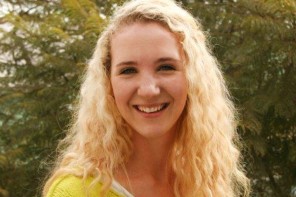Written by: Janine Erasmus
South Africa and Norway are teaming up to address climate change and boost marine science in Africa, with the recent launch of the Nansen-Tutu Centre in Cape Town in May.
The newly launched facility is the fifth in the international Nansen group of research centres, each of which has a different focus. The other four centres are located in St Petersburg, Russia (1992); Bergen, Norway (1986); Kochi, India (1998); and Beijing, China (2003), making the South African facility the only one to be located in the Southern hemisphere.
The Nansen group was founded by oceanographic professor Ola Johannessen, who retired as director of the Bergen facility at the end of 2009 and was succeeded by Stein Sandven. Johannessen still holds the post of group director.
The new centre is named after its patron, South Africa’s Archbishop Emeritus Desmond Tutu, and Norwegian scientist, explorer and diplomat Fridtjof Nansen. Both men are distinguished Nobel Peace Prize laureates – Tutu received the accolade in 1984 for his tireless work in abolishing apartheid in South Africa, and Nansen was honoured in 1922 for outstanding humanitarian work as a high commissioner for the League of Nations, later to become the United Nations. Both are also known for their commitment to global peace and care of the natural world. The Nansen-Tutu Centre was “greatly honoured” by Tutu´s allowing the use of his name, said a statement from the centre.
The centre’s goal is to study and develop models for the three oceans associated with South Africa – the Indian, the Atlantic, and the Southern oceans. Oceanographic research will also help to determine the oceans’ influence on the African environment and climate.
The inauguration function took place in the office of Archbishop Tutu at Mpilo Ministries in Milnerton, Cape Town. Mpilo is the cleric’s middle name.
International partnership
There are seven partners involved in the international scientific project. They are the University of Cape Town’s (UCT) Oceanography department, Princeton University’s Geosciences department, the Ma-Re Institute of Marine Research at UCT, the African Centre for Climate and Earth System Sciences in Cape Town, the Geophysical Institute at the University of Bergen, the Norwegian Institute of marine Research, and the Nansen Environmental and Remote Sensing Centre.
The Nansen-Tutu Centre is hosted at the Ma-Re Institute and will be headed by Prof Frank Shilling of Ma-Re and Prof Johnny Johannessen of the Nansen Environmental and Remote Sensing Centre. The academics will hold their tenure for three years.
They are to be assisted by a board of eight, half from South Africa and half from Norway. A team of six scientists and students, also equally split between the two countries, oversees all academic activities. According to Ma-Re manager Emlyn Balarin, the centre is to grow over the next six years, increasing its staff complement to 20. The centre’s annual budget is currently around R3.7-million (US$500 000) but this is also expected to increase to around R11.2-million ($1.5-million).
Ideal marine study situation
South Africa is in an advantageous position in terms of marine research, as it is surrounded by both cold and warm oceans, a situation that gives rise to unique marine and terrestrial ecosystems.
To better protect these vulnerable ecosystems, an ability to scientifically predict potential marine conditions, in time scales ranging from days to decades, is needed – just as meteorological services are able to forecast climate conditions.
The Nansen-Tutu Centre aims to do just that, by enhancing current knowledge of marine-and climate-related systems, and complementing the existing framework for marine research in South Africa.
There is a need for regular reports on ocean behaviour, as there is with rainfall and weather patterns. Providing more accurate oceanic data will also enhance rainfall and seasonal weather reports, said Ma-Ra director John Field, because the oceans are hugely influential in global weather trends.
The centre will use real-time data, gathered by bodies such as the South African Operational Oceanography Committee, on the Benguela and Agulhas currents and the Southern ocean, and implement it in ocean models.
It also plans to foster joint research amongst scientists from all the founding partners, promote student exchanges, offer bursaries and supervision to postgraduate students, develop capacity through training, research and workshops, and conduct outreach programmes.
Areas that will benefit from this improved knowledge are, among others, coastal management, fisheries, maritime security, recreation and tourism.
Source: Media Club South Africa
The liveeco team








